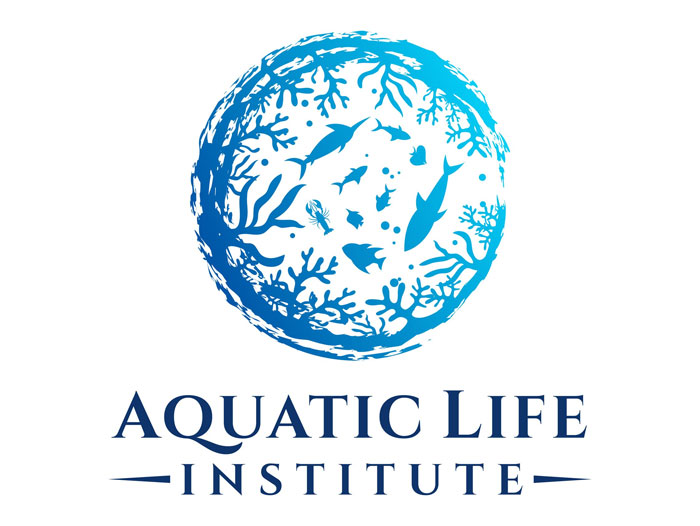Charting the Waters: Aquatic Life Institute Releases Rankings in 3rd Annual Aquaculture Certification Benchmark
October 8, 2024 | 6 min to read
The Aquatic Life Institute released its third aquaculture certification benchmark report, evaluating eight global seafood certification schemes and one ratings agency for animal welfare standards. The Aquaculture Stewardship Council (ASC) scored highest, ranking 8 out of 10, and has joined others in prohibiting octopus farming. This report highlights improvements in stocking density and harmful practices like eyestalk ablation. Emphasizing the importance of animal welfare, the Benchmark helps consumers and businesses prioritize ethical seafood sourcing.

The welfare-based analysis reviews 8 global seafood certification schemes and one international ratings agency
Aquatic Life Institute (ALI) published the third edition of its aquaculture certification benchmark report, which analyzes current welfare requirements within the primary farming standards of global seafood certification schemes and an international ratings agency. The Aquaculture Certification Schemes Benchmark is part of ALI’s ongoing work to help encourage progressive development related to animal welfare standards in aquaculture, and will be used as a tool by decision-makers worldwide as they make informed choices about sourcing from the certifiers that lead in aquatic animal welfare. The detailed analysis and personalized recommendations within the Benchmark serve as a roadmap to continue progressing to the highest standards possible, or to construct entirely new welfare requirements for aquatic animals where they previously did not exist.
This year’s Benchmark includes eight global seafood certification schemes and one international ratings agency, which, collectively, cover billions of individual aquatic animals annually. Within the report, Global Animal Partnership (GAP), Friend of the Sea, GLOBALG.A.P., Global Seafood Alliance’s Best Aquaculture Practices (BAP), RSPCA Assured, Naturland Organic, Aquaculture Stewardship Council (ASC), Soil Association Organic, and Monterey Bay Aquarium’s Seafood Watch are evaluated on water quality, stocking density and space requirements, environmental enrichment, feed composition, stunning and slaughter, neglected species prohibitions, as well as additional considerations.
Based on assessment areas detailed above, Aquaculture Stewardship Council (ASC) is ranked the highest from this year’s Benchmark, with a score of 8 out of 10. ASC, which was rated based on the draft of their upcoming farm standard, received full points awarded for water quality, space requirements and stocking density, and stunning and slaughter, all of which are critical components of ensuring aquatic animal health and welfare.
One of the most notable areas of improvement from this year’s analysis include ASC and Soil Association joining RSPCA and Friend of the Sea in prohibiting the certification of any form of octopus or cephalopod farming. Proactively prohibiting octopus farming, as seen in recent legislation from California and Washington, is crucial due to the significant concerns associated with farming these highly intelligent and solitary animals, whose complex needs cannot be met in intensive farming systems. By taking this stance, certifiers send a strong signal to the industry that there is no market demand for products that compromise animal welfare and environmental sustainability.
Some of the key highlights from this year’s Benchmark include notable improvement in stocking density and space requirement ratings, as well as an increased number of policies prohibiting eyestalk ablation in shrimp farming. In addition, three out of the seven certifiers previously evaluated improved their scores from the 2023 benchmark following ALI’s certifier recommendations, including ASC, RSPCA, and Naturland..
“Aquaculture Stewardship Council is happy to take the leading position among all aquaculture certifications, standards and ratings benchmarked by Aquatic Life Institute (ALI) for the second year in a row. This proves ASC’s commitment towards the improvement of fish welfare through rigorous monitoring and evaluation requirements for seafood farms and key welfare indicators,” said Maria Filipa Castanheira, Fish Health and Welfare Standards Manager at Aquaculture Stewardship Council. “Fish welfare is increasingly becoming an important component in responsible seafood farming. With a dedicated principle on animal health and welfare in the new ASC Farm Standard, ASC is transforming the way we tackle fish welfare in seafood production.”
The significance of animal welfare in business practices has been heightened by the emphasis on sustainable development. Consumers are increasingly interested in product origin and are opting for socially and environmentally responsible supply chains. This shift in consumer behavior has led businesses to effectively demonstrate their commitment to ethical sourcing, resonate with conscientious consumers, and strengthen their brand’s reputation as a responsible and compassionate industry leader by sourcing from certification labels evaluated under this benchmark.
“As the only organization rigorously evaluating animal welfare standards of seafood certifiers each year, Aquatic Life Institute’s Benchmark plays a critical role in holding the industry accountable. This independent analysis highlights both progress and gaps, encouraging certifiers to elevate their standards that protect the health of aquatic animals and prioritize positive welfare for these individuals, all of which minimize the negative environmental impacts of aquaculture,” said Tessa Gonzalez, Head of Research at ALI. “Our work ensures that what happens below the surface doesn’t stay hidden, empowering consumers, companies, and certifiers to make informed choices and take important steps forward.”
The Aquaculture Certification Schemes Benchmark and Seafood Certifier Campaign are both quintessential illustrations of ALI’s work to refine the conditions in which billions of aquatic animals are currently kept and to reject the introduction of additional animals into our global seafood supply chain. Aquatic Life Institute, leading the Aquatic Animal Alliance, a coalition of 151 organizations from 73 countries, enables advocates to drive impactful change locally. The Benchmark can help corporations and policymakers worldwide to adopt aquaculture certifications that embed animal welfare into supply chains and trade regulations, encouraging accountability and reshaping the seafood industry on a global scale.
About Aquatic Life Institute
Aquatic Life Institute is an international non-profit organization that works on advancing aquatic animal welfare in both aquaculture and wild capture fisheries globally. The organization works with certifiers, nonprofits, academic institutions, industry stakeholders, governments, and the public to improve welfare of aquatic animals.
